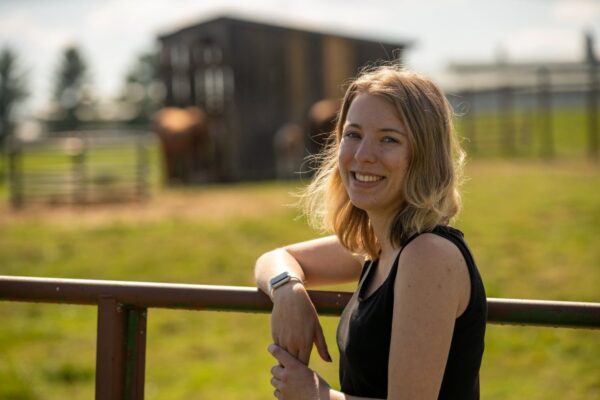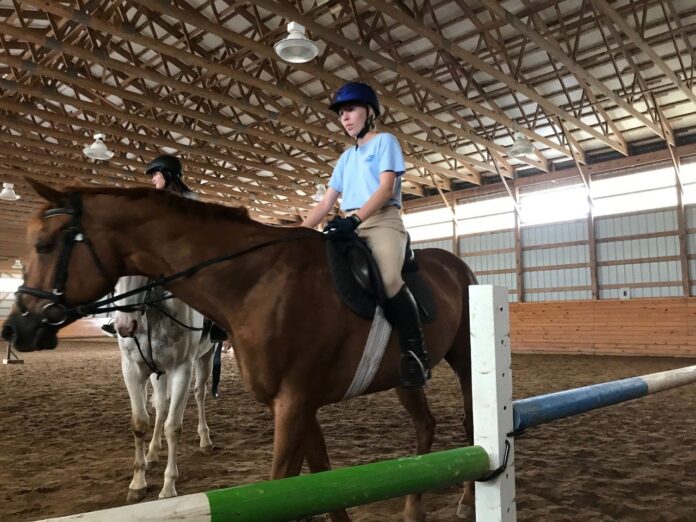It’s rare for someone to have a clear North Star on their path.
It’s even rarer for a child to have that clarity.
But for Seneca Johnston, a senior in the Department of Agricultural and Applied Economics in the College of Agriculture and Life Sciences at Virginia Tech has known precisely what she’s wanted to do since she hopped on a horse at 8 years old.
Like most children, she didn’t initially want to go to camp. She wasn’t the most outgoing at that age. But the horses calmed her. “I was always afraid and sought comfort from horses,” she said. “I quickly learned that when I was next to a horse, I was more relaxed and it was easier for me to talk to people. I slowly opened up, and horses are why I became social. I knew I was safe.”
From that young age, she knew what she wanted to do: open an equine center. “I’ve always loved horses, and the idea of combining that with my education in agribusiness seemed like the perfect blend,” said Johnston, who is from Loudoun County.
The motivation to create a deaf-friendly equestrian center came from Johnston’s experiences with the deaf community and her education in American Sign Language (ASL).
When she was a child, before she learned to speak, Johnston’s family laid the groundwork for ASL so that she could be bilingual. “We learned from a set of DVDs my mom got us,” Johnston said. “I really loved it, and we kept up with it. I found out that I needed a language to graduate from high school, so I chose American Sign Language. I learned about the deaf community beyond sign language.”

In her ASL courses, one of her teachers opened her eyes to the challenges deaf people face when wanting to ride horseback.
“There are few places that cater specifically to their needs without labeling them as disabled,” Johnston said. “So many people see deafness as a disability. But it isn’t. They function just like everyone else but can’t hear. It’s incredibly hard to find a barn that has these accommodations. I want to open an equine center that is fully accessible and truly feels like a space that can be a second home for this community.”
Because of that camp, Johnston also wants to incorporate youth activities into the center that extend beyond horses. She’s hoping to add beekeeping, chickens, and goats to provide even more opportunities for deaf children to interact with animals.
“Looking back, I’m fortunate to have such a clear idea of what I want to do in my life,” Johnston said. “This came from the experiences I had as a child. I want to provide the same opportunities for children who otherwise may not be able to have them just because they are deaf. I’m excited to work collaboratively with the deaf community to make this a reality.”
To do this, Johnston will utilize “everything” she’s learned in agricultural and applied economics.
“All of my courses have prepared me to go into business,” she said. “Agriculture Law is something that has been particularly helpful as I begin the search for properties, through zoning, ordinance, and any limitations that deed may have attached to it, such as animal limitations. I know that I wouldn’t be as prepared without having taken these courses.”
A few nights a week – usually after learning something new in class – Johnston adds to her to-do list for her equine center.
“It’s got sticky notes on sticky notes by now,” she said with a smile. “I’m adding things way faster than I can complete them.”
Soon, though, she’ll start checking off some boxes to make her lifelong dream one step closer to reality.
By Max Esterhuizen

